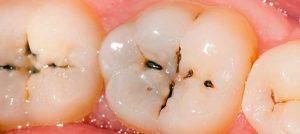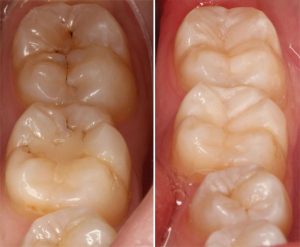 Dental fillings are used often in dentist work and are one of the most common procedures. The better you look after your teeth, the less fillings you will need. Most people will eventually need fillings due to general wear and tear of the teeth. If you are getting a filling, here is everything you need to know before the appointment.
Dental fillings are used often in dentist work and are one of the most common procedures. The better you look after your teeth, the less fillings you will need. Most people will eventually need fillings due to general wear and tear of the teeth. If you are getting a filling, here is everything you need to know before the appointment.
Is It Painful?
The question most people want to know the answer to is ‘is the filling painful?’. You will be injected with an anesthetic around the site of the filling area so that you will not feel any pain, as your nerves will be numb. Your dentist will put you at ease before your appointment and explain the procedure. The needle can hurt but once this is done you will not feel the rest of the procedure.
How Is a Filling Fitted?
 A filling is used to cover any exposed area of the tooth that can cause sensitivity and pain. This can be due to a dental ailment such as gum disease or tooth decay, or it could be from a tooth fracture. Once the area is numbed, a drill will be used to remove any parts of the tooth that are damaged. The filling will then be put into the gap in the tooth to ensure that everything that needs to be covered is now protected by this filling. Most dentists offer white fillings so that they match the color of your teeth. It is recommended not to eat anything too sticky such as sweets after the procedure as the filling needs time to set.
A filling is used to cover any exposed area of the tooth that can cause sensitivity and pain. This can be due to a dental ailment such as gum disease or tooth decay, or it could be from a tooth fracture. Once the area is numbed, a drill will be used to remove any parts of the tooth that are damaged. The filling will then be put into the gap in the tooth to ensure that everything that needs to be covered is now protected by this filling. Most dentists offer white fillings so that they match the color of your teeth. It is recommended not to eat anything too sticky such as sweets after the procedure as the filling needs time to set.
Can Fillings Last a Long Time?
 Dental fillings are made to last around 10-15 years, depending on what substance your dentist used and how well you look after your teeth and the filling in the time afterwards. Your dentist will tell you how best to look after your filling and will provide you with any aftercare advice. The better you look after your teeth, the longer your filling will last.
Dental fillings are made to last around 10-15 years, depending on what substance your dentist used and how well you look after your teeth and the filling in the time afterwards. Your dentist will tell you how best to look after your filling and will provide you with any aftercare advice. The better you look after your teeth, the longer your filling will last.
Fillings are only offered when necessary to protect the sensitive parts of the tooth. This will prevent pain and stop any further damage over time. If you need a filling but you are worried, speak to your dentist. If you think you need a filling, contact us to schedule an appointment with the best dentist in Staten Island.


 There are several different types of cavities and children are more at risk, but this doesn’t mean adults aren’t affected too. Root cavities involve decaying of the tooth’s root due to receded gums. As this is exposed, it can easily decay. Coronal cavities are the most common cavity in both children and adults and these cavities are usually on the surfaces of the tooth where we chew or in-between teeth. Recurrent decay is decay that forms around existing fillings or crowns.
There are several different types of cavities and children are more at risk, but this doesn’t mean adults aren’t affected too. Root cavities involve decaying of the tooth’s root due to receded gums. As this is exposed, it can easily decay. Coronal cavities are the most common cavity in both children and adults and these cavities are usually on the surfaces of the tooth where we chew or in-between teeth. Recurrent decay is decay that forms around existing fillings or crowns. A cavity occurs when certain types of bacteria form and produce acid, which destroys the enamel and the dentin underneath protecting the sensitive areas of the tooth, leaving them exposed to pain and bacteria. Left untreated, a dental cavity can be very serious. It can destroy your tooth and the nerves surrounding it which can lead to further problems such as a dental abscess.
A cavity occurs when certain types of bacteria form and produce acid, which destroys the enamel and the dentin underneath protecting the sensitive areas of the tooth, leaving them exposed to pain and bacteria. Left untreated, a dental cavity can be very serious. It can destroy your tooth and the nerves surrounding it which can lead to further problems such as a dental abscess.